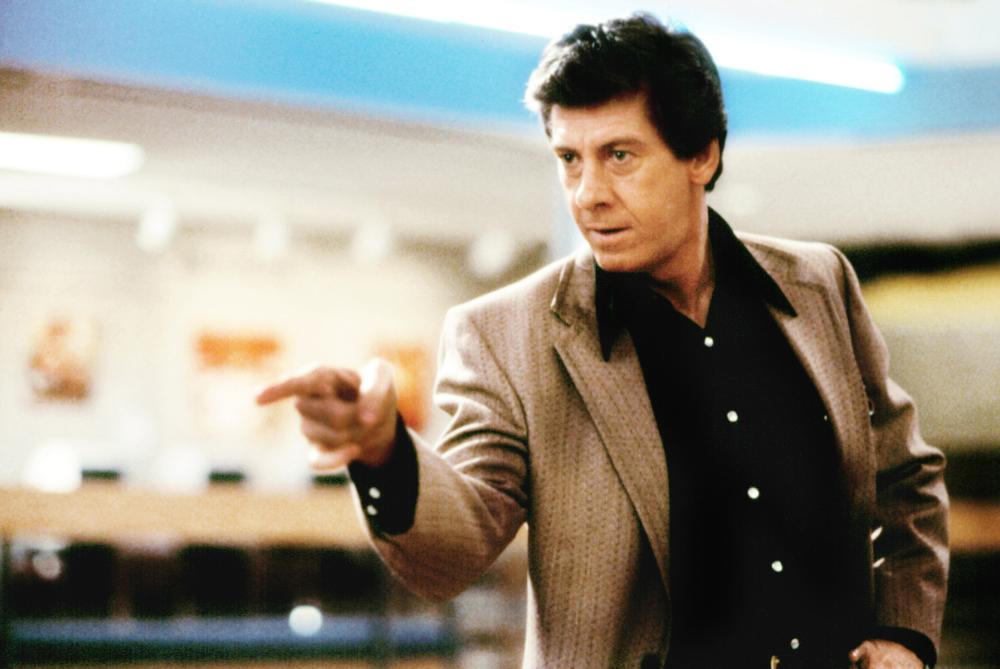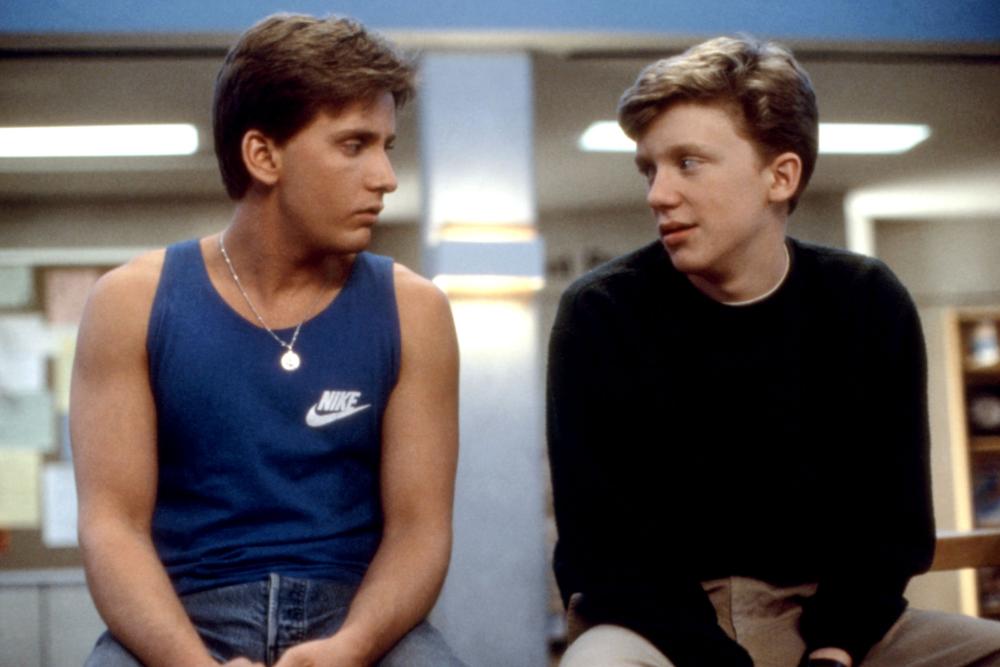
“Screws fall out all the time, the world is an imperfect place.”
The Breakfast Club, 1985 (Judd Nelson) MCA/Universal
Uh-oh. John Hughes gets serious. We were having fun with Mr. Mom, Vacation, and Sixteen Candles but then we get The Breakfast Club. This isn’t your stereotypical teen comedy. You have your archetypes: the prom queen, the jock, the basket case, the brain, and the rebel. You put your archetypes in a room and you apply heat. It’s an experiment. It’s a rainy Saturday morning. Detention at Shermer High School, Shermer, Illinois 60062. This simple, seminal teenage drama is the blueprint for all Generation X newspeak; the great leveler in discussion between those younger than us and those older than us.
I remember thinking this was something special when my homeroom teacher, Mr. Whye, urged us to see the movie. He had to have at least twenty years on us and here he was: recommending a John Hughes film. Other than the abrasive parents of these kids, there are only two other “adult” parts — that of Paul Gleason as Assistant Principal Vernon and John Kapelos as Carl, the janitor. The kids, with the exception of Anthony Michael Hall (as the “brain,” Brian) and Molly Ringwald (as the “prom queen,” Claire) are roughly ten years older than the target audience, but they play young exceptionally well.

This is like science fiction beginning with speculation. What if? What if we put these contradictory characters in a room (five characters in search of an exit) and make them bare their souls, make them bond, make them understand each other, and make them realize that they’re trapped? It occurred to me that I had no idea what it was that each character did to receive detention until the truth came out. Bender, the rebel (Judd Nelson) pulled a fire alarm. Andrew Clark (“On your feet, Mister!”), the jock (Emilio Estevez) taped Larry Lester’s buns together. Brian (“PB & J with the crusts cut off.”) brought a flare gun to school. Claire skipped class to go shopping. Some are relatively minor offenses.
Brian’s transgression seems the worst of all, and I did wonder if his flare gun set off the fire alarm. Ally Sheedy’s basket case, Allison (she never gives her name in the movie) is just bored and has nothing better to do on a Saturday morning. We move from science fiction to basic animal biology. The creatures learn to adapt within their limited surrounding. They observe each other’s food habits. Ally (“Somebody wake her up! This isn’t a rest home!”) enjoys sugar – she eats a sandwich composed of breakfast cereal. Brian has soup. Claire eats sushi and seaweed (“You won’t accept a guy’s tongue in your mouth, but you’ll eat that?”).

Much of the intensity in The Breakfast Club is supplied by the tension between Judd Nelson and his co-stars, but I noted that Nelson’s character channels his anger, sometimes in destructive ways, but most of the time he’s an observer in a farce. He takes nothing and no one seriously, particularly Vernon, who has made it his mission in life to terrorize Bender. Vernon is matched by his existential threat, and as mean as he can be in the intimidation he exudes, he remains a sympathetic character in trying to reach Bender on a human level. His conversation with Carl, the janitor, later is revelatory. Gleason was a fine actor often relegated to playing “heavies” in popular movies. Kapelos is no slouch either.
There are moments of unusual bonding courtesy of weed stuffed in Brian’s underpants. There are moments of reality when the kids wonder if they will become their parents when they grow up. There are moments of brisk cruelty when they turn on each other and reason that nothing will change after this Saturday morning. Hughes loves his characters and shows them an emotional generosity missing in most movies about teenagers (even being made today).



